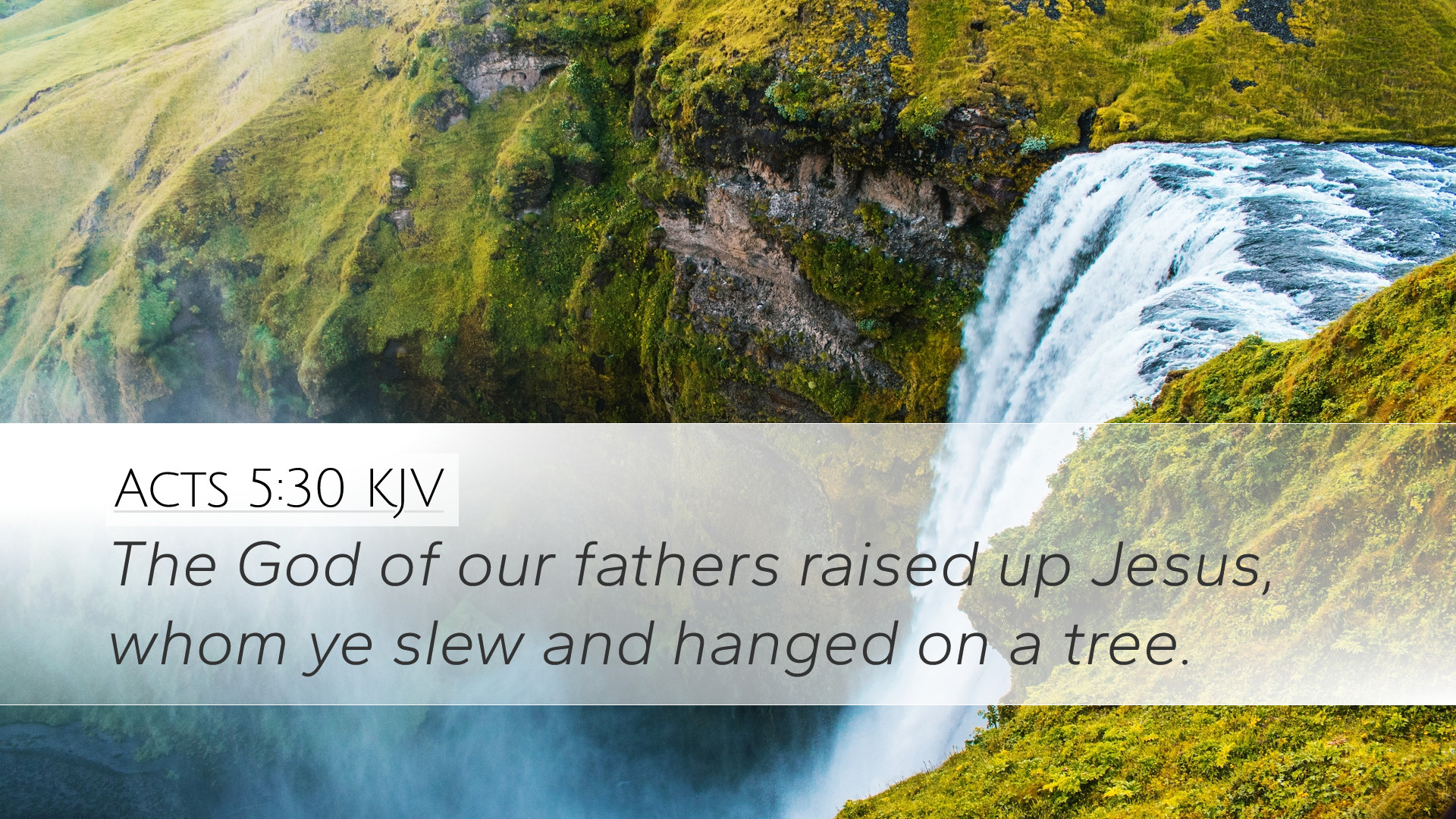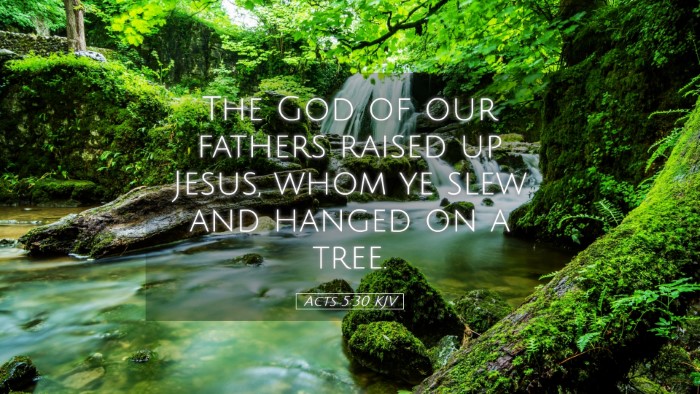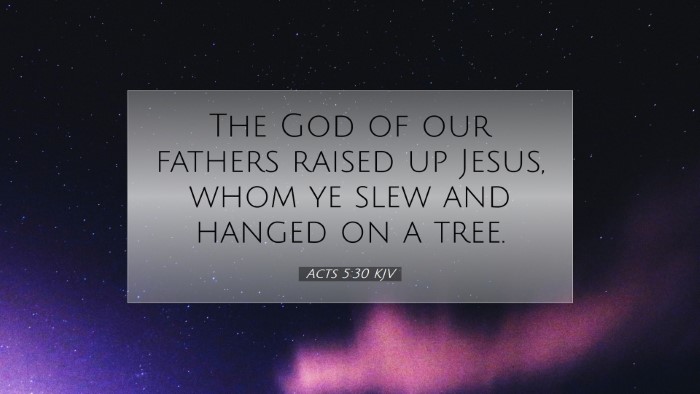Acts 5:30 Commentary
The verse in focus, Acts 5:30, states: "The God of our fathers raised up Jesus, whom ye slew and hanged on a tree." This profound assertion encapsulates key themes of resurrection, divine providence, and human sinfulness, which are pivotal in the early Christian narrative. Below, we explore various insights from prominent public domain commentaries.
Contextual Overview
This verse emerges from a critical moment in the early church's history, where the apostles are delivering their testimony before the Sanhedrin after having been arrested for preaching the gospel. The apostles, particularly Peter, make a bold proclamation about Jesus’ resurrection and the culpability of the Jewish leaders in His crucifixion.
Insights from Commentaries
Matthew Henry's Commentary
Matthew Henry highlights the significance of the declaration of Jesus' resurrection as an act of divine intervention. He emphasizes that God is the same God who worked through the patriarchs, indicating consistency in His plan of salvation. Henry stresses the gravity of the apostles' charge against the ruling authorities, portraying their actions as not only a rejection of Jesus, but also an affront to God Himself.
- Theological Implications: Henry notes that the resurrection is central to Christian faith, underscoring the power of God over death, which leads to the promise of life for believers.
- Historical Accountability: He points out that the phrase "whom ye slew" reflects the communal responsibility for the crucifixion, attributed not only to specific individuals but to the nation as a whole.
Albert Barnes' Notes on the Bible
Albert Barnes provides a detailed examination of the phrase "the God of our fathers," rooting it in the Jewish tradition and the covenantal relationship God has with His people. He asserts that this invocation not only places the apostles within the heritage of Israel but also establishes their authority to speak on spiritual matters.
- Connection to O.T. Figures: Barnes discusses how the patriarchs signify a lineage of faith that culminates in Jesus, highlighting the continuity of God's promise throughout the scriptures.
- Context of Jewish Leadership: He underscores that the actions of the Jewish leadership in condemning Jesus are presented as a significant moment in the narrative of God's redemptive plan.
Adam Clarke's Commentary
Adam Clarke takes a unique approach to the phrase "hanged on a tree," exploring its Old Testament roots and ceremonial significance. He elaborates on the nature of the curse associated with such a death, referencing Deuteronomy 21:22-23, which states that "he who is hanged is accursed of God." This adds a weighty theological layer to the understanding of Jesus' sacrificial death.
- Redemptive Suffering: Clarke explains that the nature of Jesus' death was not just a tragic event but is part of God's plan, allowing Jesus to bear the curse of sin on behalf of humanity.
- Challenge to Authority: He comments on Peter's courage in calling out the Jewish leaders, framing this as a confrontation with religious and moral authority, which ultimately calls for accountability from those who claimed to represent God.
The Resurrection Theme
The resurrection serves as the triumphant affirmation of the messianic identity of Jesus. Each commentary recognizes the resurrection as foundational to Christian theology, serving as both proof of Christ’s divine nature and a promise of eternal life for believers. The insistence on God raising Jesus amplifies His sovereignty and reminds listeners that human rebellion cannot thwart divine purpose.
Application for Today's Context
For pastors and theologians, Acts 5:30 holds significant relevance. It provides a model for bold witness in the face of opposition and a reminder that faith often necessitates calling out injustice situated within religious contexts. As scholars delve into this verse, they might consider:
- TheCall to Repentance: Just as Peter calls out the sin of the Jewish leaders, modern preaching often includes the call to repentance in the face of cultural sins.
- The Power of Testimony: The importance of personal and communal testimony as a source of strength in the face of persecution or societal pushback.
- Understanding the Nature of Jesus’ Death: Engaging with the implications of Christ’s atoning sacrifice through exegesis, historical context, and theological reflection.
Conclusion
Acts 5:30 serves as a crucial lens through which one can examine the early church's proclamation of faith amidst persecution. Its theological depth and historical significance remain pertinent for contemporary audiences. The collective insights from Matthew Henry, Albert Barnes, and Adam Clarke enrich our understanding, highlighting key themes that resonate through time.


